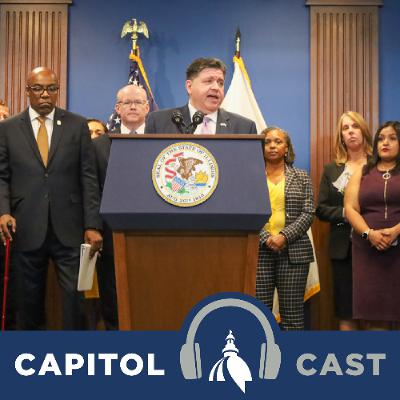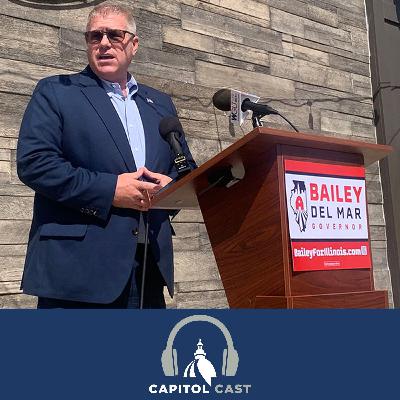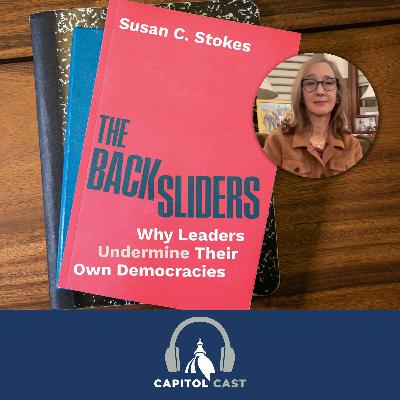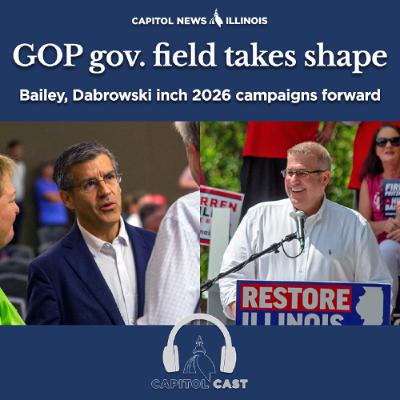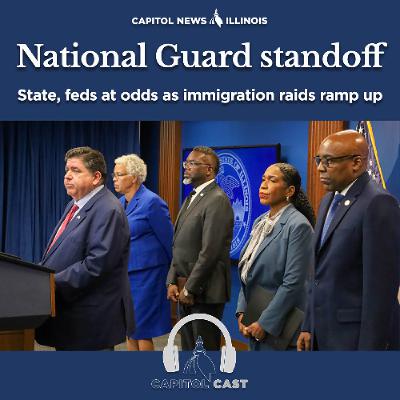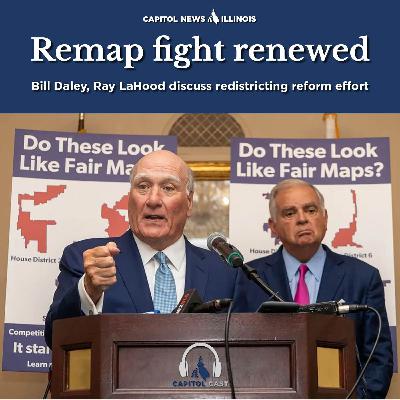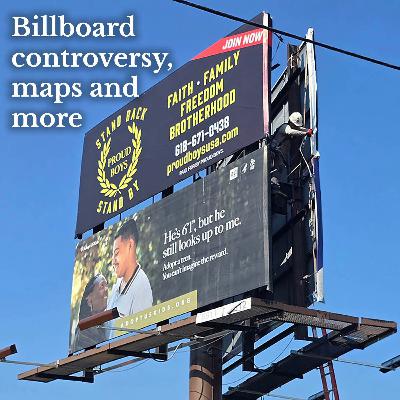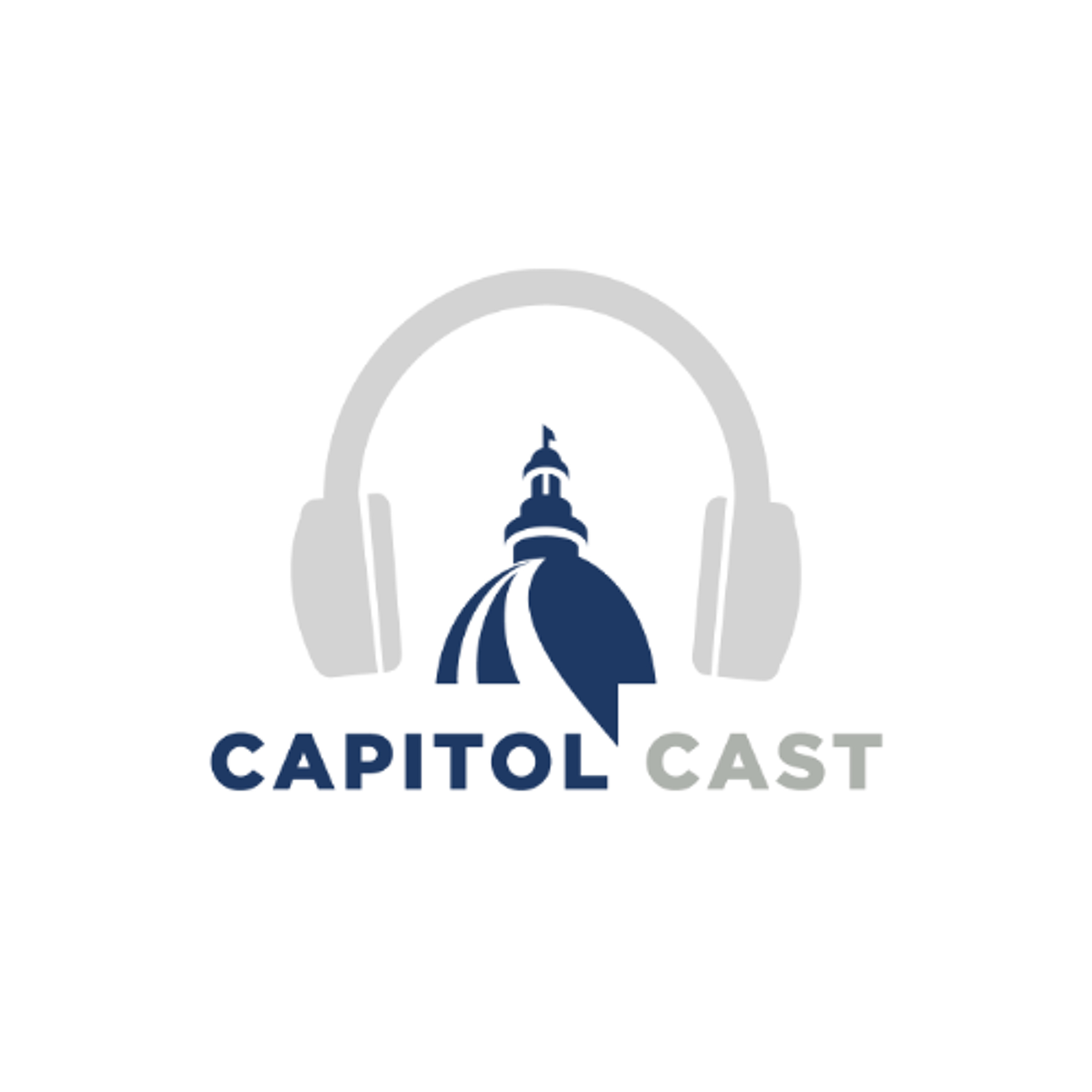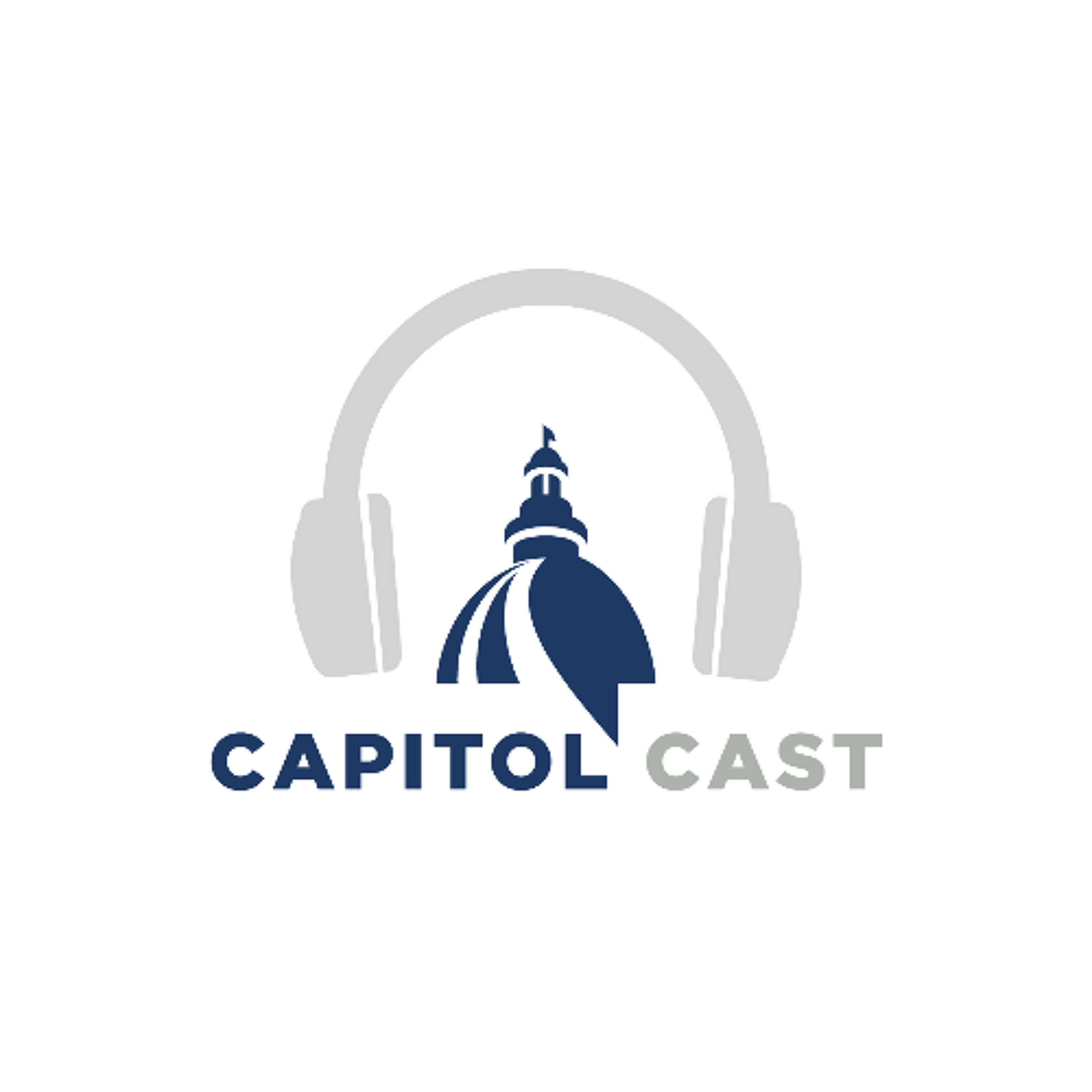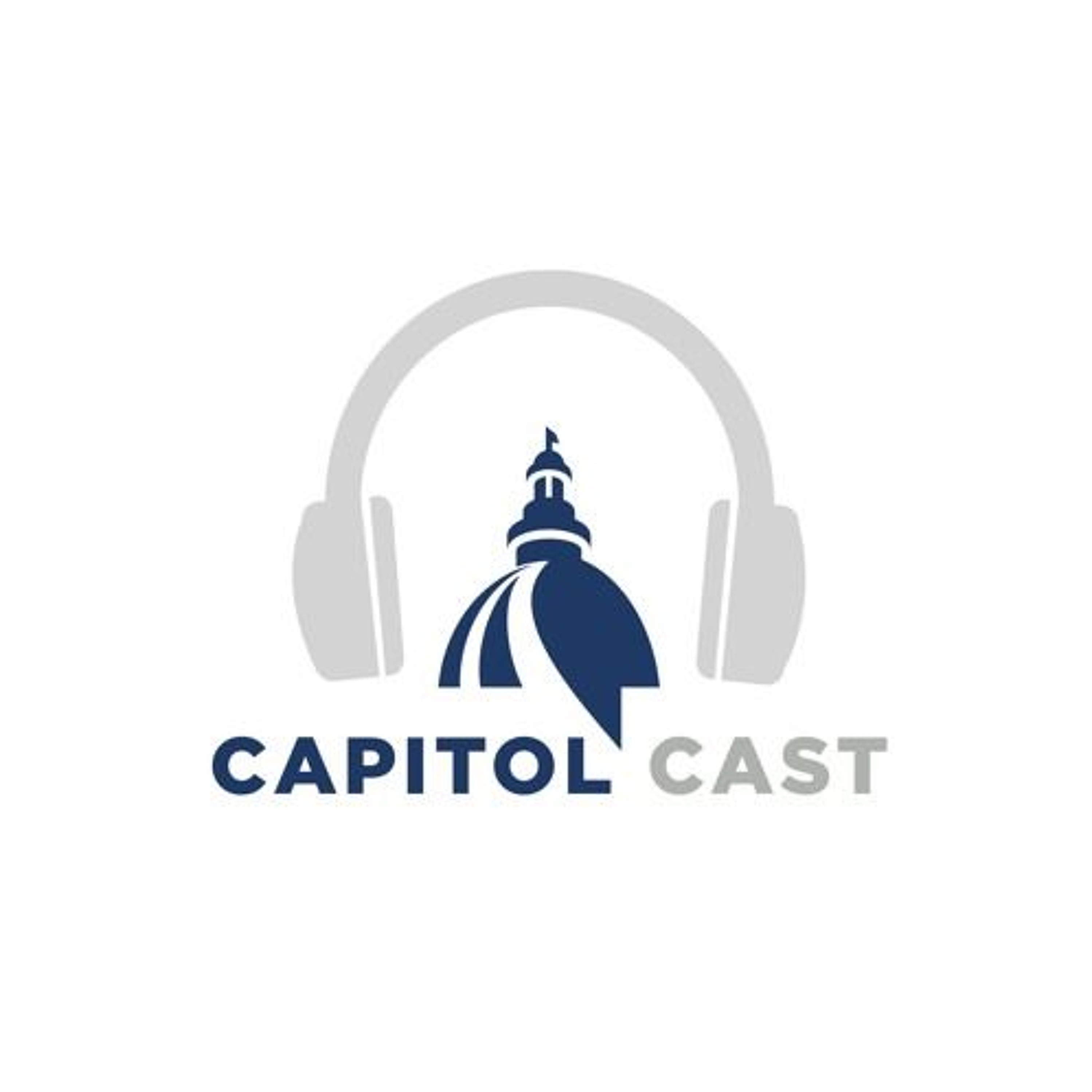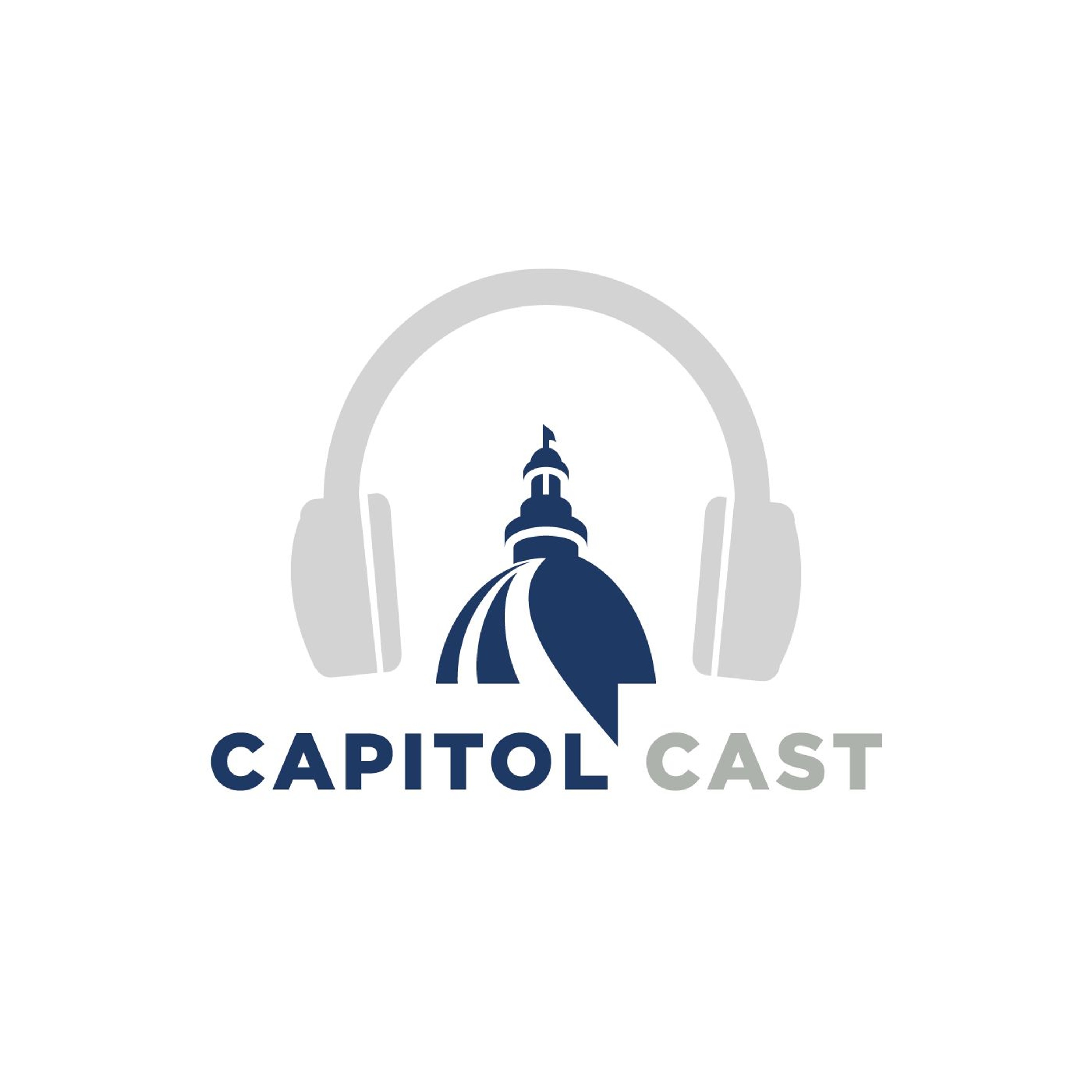Discover Capitol Cast: Illinois
Capitol Cast: Illinois

305 Episodes
Reverse
Jerry Nowicki and Ben Szalinski discuss the latest developments in the federal immigration crackdown in Chicago, whether federal troops are on the way, and what, if anything the state an do about it.
Jerry Nowicki and Ben Szalinski discuss the news of the week, from Illinois' successful lawsuit to protect its federal funding, Darren Bailey's second governor campaign launch and Illinois' immigration information void.
Democratic values and institutions are coming under attack in the United States and around the world. In her new book, "The Backsliders: Why Leaders Undermine Their Own Democracies," University of Chicago political scientist Susan Stokes discusses why this is happening now and what citizens can do about it.
The list of potential Republican candidates for governor grew this week. Ted Dabrowski, who publishes the conservative newsletter Wirepoints, formally announced his candidacy. And the party's 2022 nominee, former state Sen. Darren Bailey, has made it known he plans to run again. Peter Hancock, Ben Szalinski and Jerry Nowicki talk about those developments. Also, the Illinois Supreme Court announced that Justice P. Scott Neville will become the next chief justice in October, succeeding Mary Jane Theis as head of the court.
Tensions are high in Chicago where President Trump has threatened to send in federal troops to control crime and step up immigration enforcement. Peter Hancock, Andrew Adams and Jerry Nowicki discuss what is known about the situation and where it could lead. Plus, Molly Parker explains why some farmers in southern Illinois cannot access a federal program intended to help them take farm land in flood-prone areas along the Mississippi River out of production.
Peter Hancock hosts a discussion about a proposed state constitutional amendment in Illinois to reform the redistricting process. Former Clinton administration Commerce Secretary and Chief of Staff Bill Daley and former Republican congressman and Obama administration Transportation Secretary Ray LaHood advocate for an independent commission to draw state legislative district maps, aiming to reduce partisan gerrymandering. They cite past failures, such as the 2016 effort thwarted by the Illinois Supreme Court, and propose a simpler process for 2026.
The CNI news team discusses major stories of the week, including the brief appearance of a recruiting billboard for the far-right group called the Proud Boys, Senate President Don Harmon appealing a $10 million fine for campaign finance violations, the expansion of protections for news organizations against SLAPP suits, and a new effort underway to put legislative mapmaking in the hands of an independent commission.
The Illinois State Fair marked the unofficial launch of the 2026 election cycle. Democrats and Republicans brought major names to the stage to help showcase their candidates and fire up their supporters. Peter Hancock, Jerry Nowicki and Ben Szalinksi share their impressions of the events and discuss what it all signals about the campaigns ahead.
Democratic Texas lawmakers fled their statehouse in Austin this week, and many of them sheltered in Illinois as part of a tactic to delay voting on a Republican-backed congressional redistricting plan. The political drama is drawing national attention as both political parties in Illinois are gearing up for their big days at the Illinois State Fair. Peter Hancock and Ben Szalinski analyze what has been happening and what it may mean for the 2026 elections.
The Trump administration is seeking the entire, unredacted statewide voter registration database while the U.S. Supreme Court prepares to hear a case challenging part of the state's vote counting procedure. U.S. Rep. Danny Davis announces he won't run for reelection. And Democratic leaders in Illinois take on the insurance industry. Peter Hancock, Ben Szalinski and Andrew Adams analyze the week's news.
The race to fill the seat of retiring U.S. Sen. Dick Durbin is already getting crowded. Gov. JB Pritzker is pushing back against proposals in Texas to redraw that state's congressional district to minimize GOP losses next year. Pritzker is also traveling to North Carolina this weekend, stoking speculation about his own national ambitions. The CNI news team discusses those stories and looks ahead to the upcoming Illinois State Fair.
A new study suggests upward mobility is more difficult in Illinois than many would think. Although educational attainment and career choices have the biggest influence over a person's income potential, the economic class into which they are born also plays a role. Students from lower-income households tend to earn less than their wealthier peers, even after earning similar degrees and going into similar fields. Sarah Cashdollar, associate director of the Illinois Workforce and Education Research Collaborative, talks with CNI's Peter Hancock about the report, "Precarious Prospects."
This month marks the 60th anniversary of President Lyndon Johnson signing Medicare and Medicaid into law. At the time, Medicaid was considered to be a minor part of the bill, but it has since ballooned to become a driving force behind the entire American health care system. Now, it's about to be cut back dramatically under President Trump's recently passed domestic policy legislation. How did we get from there to here? Peter Hancock interviews Colleen Grogan, a professor and researcher at the University of Chicago, about the political history of Medicaid.
Gov. JB Pritzker is seeking a third term. Jerry Nowicki, Ben Szalinski and Public Affairs Reporting intern Jade Aubrey discuss the announcement and Aubrey's time at Capitol News Illinois.
Gov. JB Pritzker signed a $55.1 billion budget bill into law while criticizing the Trump administration for making budget planning at the state level more difficult. Meanwhile, Republican lawmakers filed a constitutional lawsuit challenging a legislative procedure known as "gut and replace," by which many major acts of the General Assembly are passed.
Protesters took to the streets in Chicago and other major cities this week as the Trump administration stepped up its efforts to carry out mass deportations of undocumented immigrants. Meanwhile, Gov. JB Pritzker went to Capitol Hill to defend the state's policies on immigration. Peter Hancock talks with Fred Tsao, of the Illinois Coalition for Immigrant and Refugee Rights, about the protests and CNI's Ben Szalinski about the congressional hearings on immigration.
Illinois lawmakers closed out the 2025 spring session by passing a $55.2 billion budget and a revenue package to help pay for it. But the session was marked as much by what didn't get through the process as what did. The Capitol News Illinois team breaks down the major issues that were confronted in the final days of the session.
As the final week of the legislative session approaches, Illinois lawmakers face a daunting task of balancing a budget for the upcoming fiscal year in the face of slow revenue growth and increased demands for state services. The budget picture became even more complicated this week when the U.S. House passed a budget reconciliation bill - what President Trump calls the "big, beautiful bill" - that would slash federal spending for Medicaid and a host of other programs. Peter Hancock, Jerry Nowicki and Ben Szalinski break down the budget picture and look ahead to other issues lawmakers will try to tackle next week.
May 19 will mark the 150th anniversary of Mary Todd Lincoln, widow of the slain president, being declared legally insane and committed to an asylum outside Chicago. Historian Jason Emerson discusses his new book, "The Dark Days of Abraham Lincoln's Widow, As Revealed by Her Own Letters," published by Southern Illinois University Press.
Homeland Security Secretary Kristi Noem's visit to Springfield this week put a spotlight on the Trump administration's immigration policy while also sparking protests from immigrant rights advocates. Peter Hancock, Ben Szalinski and Jade Aubrey discuss the event and what may be at stake for Illinois' own policies regarding immigrants.


